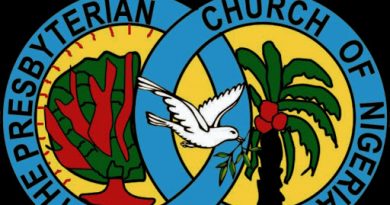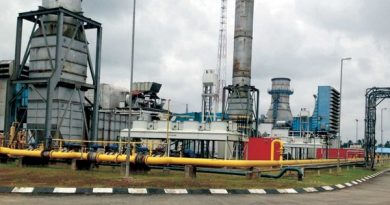We don’t negotiate with terrorists, we kill them, El-Rufai says; laments ” police, military few in number and overstretched”
Kaduna State Governor, Malam Nasir el-Rufai, has declared that his government has no other considerations for captured bandits, except to send them back to God to answer for their activities against humanity.
El-Rufai made this remark while briefing newsmen on Tuesday in Abua after his meeting with President Buhari. He expressed concern as well about the inability of the security agencies to access the locations of the bandits troubling his state. He said these issues informed his visit to the State House, Abuja on Tuesday to meet President Muhammadu Buhari and avail him details of the security situation in his state, where terrorists killed some 40 persons a few days ago.
El-Rufai said people who engaged in terrorism or banditry never ever repented but could only be stopped by death. He added that his government was convinced it was its duty to end the reign of terror by dispatching terrorists to meet their Creator.
Regarding his position on repentant bandits, el-Rufai said, “There is nothing like repentant terrorists (or bandits). The only repentant bandit is the one that is dead. Our intention in the state is to kill them (bandits/terrorists), let them go and see God.”
Explaining that care must be taken in dealing with bandits to avoid collateral damage to innocent civilians, he said, “There was a problem. Even if you know where the bandits are, you don’t want to go and bomb all of them, because they may have civilians in custody. You may have collateral damage. And without the declaration of bandits as terrorists, it might even be referred to as abuse of their human rights.”
The governor, however, said the recent declaration of bandits by the Federal High Court as terrorists had provided an avenue to fight them without limits.
“So, no one will be dragged to the international court, because you killed bandits. No,” he said, emphasising that Kaduna State would not negotiate with bandits, as its policy was to kill them all.
On the nomenclature of the criminals, the governor stated emphatically, “They are bandits. If you want to call them terrorists you can call them terrorists, but we don’t want to confuse them with terrorists that we know, the Boko Haram. IPOB has been declared terrorists. We don’t call them terrorists, we call them IPOB. The nomenclature doesn’t matter. What matters is that they are now fair game for the armed forces.
“Once you say banditry of whatever description has been designated terrorists, that’s it. That gives the military the power to do what they do. What we call them is not important. What they are called does not matter, but it is the legal status of being declared terrorists that matters. The legal status is that they have been declared terrorists but which terrorists? There are many terrorists in Nigeria. Boko Haram are terrorists. Ansaru are terrorists.
“The ones that we have in Kaduna are bandits that have now been declared terrorists. These are people that rob, they kill, they kidnap for ransom. We call them bandits to differentiate them from the rest but they are terrorists.”
He called for more military operations, adding that the security agencies have been overstretched, with their involvement in operations in virtually all parts of the country.
On whether the security forces lacked the requisite intelligence to be ahead of the bandits, el-Rufai said, “Yes, we receive security reports, we know a lot about the bandits and where they are and their activities.
“But you must understand that the intelligence has to be acted upon. And if the security forces are unwilling or unable to reach the locations where these bandits are, then, there is nothing we can do as a state government.
“Federal security forces are not under our direct control. We support them, we work with them, the intelligence is being provided, but the truth of the matter is that our military and police are very few in number and they are overstretched.”
The governor acknowledged that the security agencies were doing their best, but said their efforts were not enough.
He said, “So, you have to understand the limitations that they face before you conclude that they are not doing enough. They are doing a lot. But is it enough? Certainly, not. Much more needs to be done.
“But can they do more with the number of policemen they have and the number of soldiers? I don’t know. We need to ramp up recruitment in the Nigeria Police; we need to ramp up recruitment in the Nigerian armed forces.
“We have too few numbers and our armed forces are overstretched. They are operating in several states, about 33 states, the last time we checked, and how many are they? So, we must understand the constraint that they face and sympathise with them.
“But with the acquisition of more advanced equipment from Jordan, China, Turkey and the United States, we expect that the kinetic capabilities of our armed forces will be greatly improved. So, we hope to see the end of this insecurity.”
The governor, however, said despite the level of insecurity in Kaduna, the state had continued to attract investments even though it could have been better.
He stated, “Kaduna State is a huge state. We have 46,000 square kilometers. So, the fact that there is insecurity in one part does not mean there’s insecurity everywhere. It’s not Lagos; it’s not a small place at all.
“Yes, we’ve had investment summit and they have been very successful. In the last five years, we have attracted nearly $3billion in investments, in spite of all these stories about insecurity, because investors know that large parts of Kaduna State are quite safe; they are safe as anything.”




